If you are planning to travel to Africa, and Uganda in particular, you need to ask two key questions: is it safe to travel to Africa? Is malaria a concern, and do I need medicine before traveling to Africa? In this article, we give you answers to these questions. Below are the answers.
Sierra Leone: A tourism goldmine Scratched on the surface
This year I visited Sierra Leone for the first time in my life. On arrival at Freetown International Airport, I was amazed at the warm reception of the immigration officers, the transporters, the banking staff and everyone I met. I didn’t feel like a foreigner at all. Over the next few days that I stayed, I realised that the people of this country are seated on a tourism goldmine!
When I returned a few months later, I decided to study this goldmine a little deeper. I can now say that the tourism gold is here but the country is just scratching on the surface.
It is important to “scratch deep” because the country has to address issues such as youth unemployment, narrow tax base, balance of payments deficit and poverty. A well planned and developed tourism sector can create strong linkages with agriculture, construction, trade, utilities, banking, telecommunications, transport, soft and hard beverages and investment. In this way, tourism can spur local economic development through income generation, job creation and investment. Most importantly, tourism development can provide the necessary finances needed to protect and conserve the nation’s tourism assets. All of these things can be achieved. This not a farfetched dream because the country is intriguingly blessed!
First, Sierra Leone is blessed with over 700kms of the Atlantic Ocean coastline. There are pristine islands and beaches, with all types of sand, vegetation, history and cultures. This resource can be turned into the gateway for development of luxury resorts and a range of marine activities. Currently, the beaches are used for sand mining, with so little tourism development. Even where some tourism has been developed, it rarely goes beyond music, drink, food and a bit of sunbathing. Imagine having beautiful resorts and conference facilities in such a setting of beauty and good weather! The country has a strong history of slave trade, posing the highest potential for both roots and dark tourism. “Back to the Roots” can become the flagship product for Sierra Leone. The country has an abundancy of tropical rainforests and green hills (even within the Capital), with potential to spur ecotourism, with such activities as chimp tracking, birding, butterfly watching, hiking, canopy walks, ziplining, cycling, nature walks and community tourism. The cultural diversity of the country creates room for development of a vibrant souvenir industry, a series of cultural activities revolving around cuisine, music and dance, religion, traditional architecture, events and all ways of life of the people of Sierra Leone.
In order to unlock the tourism goldmine of Sierra Leone, a few key binding constraints must be unlocked. First, government needs to make it easy for international travellers to access Sierra Leone. This will require reducing the cost of travelling to the country through a reduction in direct fees. Some of these can be collected indirectly from the things that the visitors buy or use when already at the destination. It is not acceptable for such a beautiful country to receive only 45,000 inbound tourists for a whole year. Second, there is need to invest in the things which visitors “can do” and “see”. These are called tourism products. Once a tourist comes here, he must be encouraged to spend, suggesting that the menu of activities should be big and exciting. A tourist should be spoiled with choice of where to sleep, eat, drink, party, and the activities. The focus should be on increasing length of stay, which is directly linked to expenditure. Achieving this will require strengthening the value chain of tourism since the aspect of “experience” is key tourists. Thus, road infrastructure, internet services, electricity and clean water have to be extended to the tourism sites.
Third, all the tourism resources need to be protected, and proper tourism development plans developed for each of the resources, taking into account the unique characteristics of each resource. These plans will guide developments in the key tourism areas. Fourth, there has to be an increase in the volume and quality of accommodation facilities and eating houses. For the short time I stayed in Sierra Leone, I realised that accommodation is limited, expensive and the service is not commensurate with the price paid, at least in most places. Effort has to be made to improve the environment of business for these facilities (as a cost reduction strategy) while also enforcing standards. The country needs a grading system for accommodation facilities to allow visitors choose where to stay with proper knowledge of what to expect.
For all of the above ideas to work, there has to be evidence-based marketing. You cannot isolate supply from demand, so it is extremely important to bear in mind the needs and wants of the target markets. In essence, market studies are needed, together with market intelligence to support both the private sector and government in their marketing efforts. For instance, if evidence suggests growth of a certain market, government may have to support the private sector to invest in such markets. I may not be certain but it appears that the tourism private sector lacks access to affordable financing. Tourism is unique from other sectors, so its actors need proper financing and special incentives. The benefits of these can be seen in the wider context of tourism impacts on society.
For all this while, what I am saying is that the tourism goldmine needs a deeper scratch to create economic, social and environmental impacts for the wonderful people of Sierra Leone!
Further Reading
Can you believe this? In 2024, I met this man somewhere on River Nile in Uganda. He said, he was born on 18th February, some 70 years ago. His father was born on the same day and that’s how they’re born. His successor, a young man was also born on the same day.
When a British Explorer, John Speke visited Buganda in the 1860s, he commented that the country was way more civilised and organised than any other place he had visited in Africa. His comments were based on what he saw for the few months he stayed in Buganda. However, there was a lot he didn't see! In ancient Buganda, music, dance and drama were not only used for entertainment, but also for education,...


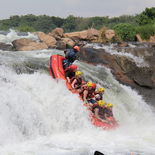
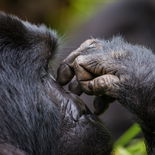
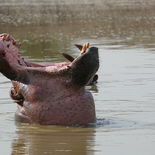
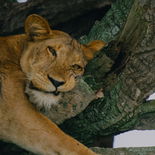
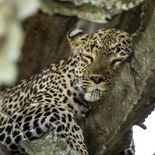
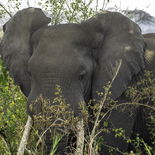
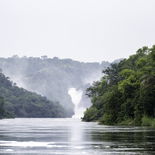
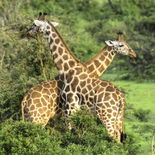
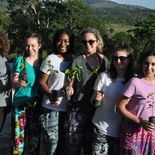
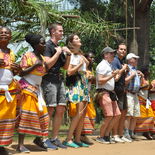
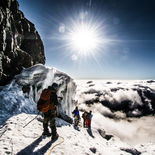
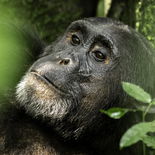
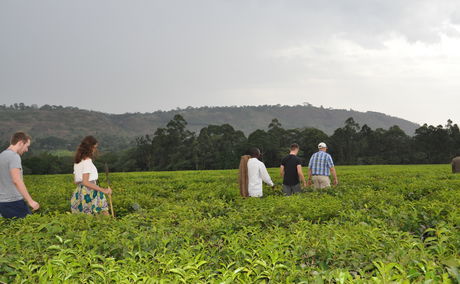
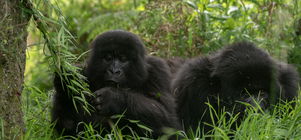
Share This Post